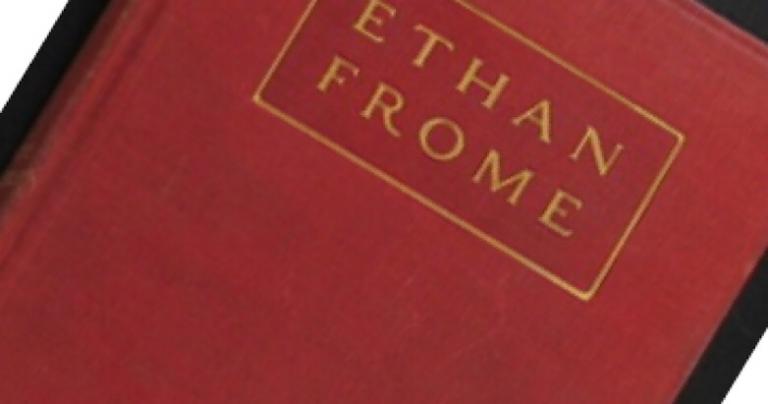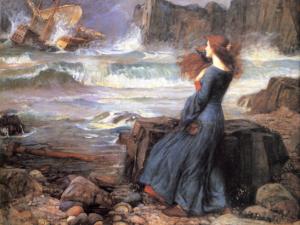 Jane Eyre and my wife taught me chastity in my twenties. God knows I wish I had learned earlier. Karen Swallow Prior (KSP) arrives to help deepen what I know and (hopefully) to help others learn earlier what I learned later.
Jane Eyre and my wife taught me chastity in my twenties. God knows I wish I had learned earlier. Karen Swallow Prior (KSP) arrives to help deepen what I know and (hopefully) to help others learn earlier what I learned later.
After all, I must pray “Lord Jesus Christ, son of God, have mercy on me a sinner.” and keep learning. One part of the mercy of God is that he sends others to help where we are weak. There is a powerful virtue chastity that our nation needs just now. We need not judge others, just ourselves, and hope for mercy and growth.
We find better guides and learn to love better than we have ever loved before that moment. I needed chastity, and since chastity is a positive virtue, growth is possible. Ethan hopes for more, because more leads to an increase in love.
Great literature can help us see a virtue we do not have, so it was for me with Jane Eyre. I learned chastity (to the extent I have learned) on those pages. Jane Eyre (the character) taught me that my love was not enough, justified nothing, and that the law of nature and of Nature’s God was higher. I must repent, do right, and walk humbly toward a romance that was proper.
Romance and propriety are so hard to put together. Chastity is the glue. Ethan Frome is a story about what happens when there is no glue and KSP uses this painful novel to educate.
What is chastity? It is not hatred of sex, a heresy if you are a Christian. :
Sex is, of course, quite natural, as is sexual desire. Human vitality is characterized by our natural desires for self-preservation, reproduction, pleasure, and community. Just as individuals need food to live, the human race depends on human vitality, or the creational impulse, in order to continue. Sexual desire is good because it is part of how God designed human beings. God made the continuation of the human race dependent on communion with and desire for one another.
What is chastity?
Chastity is the proper ordering of one good thing (sexual desire) within a hierarchy of other good things.
Chastity is not the absence of sex, but the presence of fidelity.
If sex “is about persons being bodies together,” then chastity is about the right bodies being together at the right time.
If you are a romantic, as I am, then chastity seems merely a check. Romance says “yes” and when in doubt “always yes.” Chastity is the voice of reason and reason is irritating to romance, because of even the possibility of a limit to love. Romance, applied to things, people, gods, or even God, will not stand a limit and this is why romance is not good in itself.
Romance is not a virtue, but a temperament or tendency. Men have character traits, like romance, but live by virtues. I was born a romantic, but hard work has made me more chaste (to the extent I have that virtue). Chastity is hateful to romance, but chastity turns out to make it possible for romance to last. Romance without chastity in some is damnation, think Tristan and Isolde, but in most of us merely a painful fever. The chaste can always have romance, because chastity guides romance in reality:
Properly understood, chastity is not withholding but giving. As G. K. Chesterton enthuses, “Chastity does not mean abstention from sexual wrong; it means something flaming, like Joan of Arc.”
For the naturally romantic, desire easily goes awry. The romantic loves France, but may be incapable of saving her. Chastity is romance that never fails. If a woman is chaste, she can defeat the enemies of her beloved.
Chastity has no lust, because chastity can say “no.” Romance alone will not accept reality as an answer. Instead, romance demands reality give way to desire. Chastity (ask Jane Eyre!) is romantic, but within what is good, true, and beautiful. Chastity is real romance.
As KSP points out, chastity is a virtue for all great romances not just sexual ones. One can love a country too much: jingoism. Another man can love an institution too much, putting programs over people. Chastity says “yes” to all true love, but no to all inordinate passsion.
The nationalist despises the patriot, because the patriot will not love his nation’s wrongs.
The company man hates the whistleblower, because the whistleblower loves the ideals of the company and the customer more than the short term profit of the company.
Ethan Frome (as a character) is full of frustrated desires. As KSP points out, he has education, but just enough to make the life he lives seem too small for him. He is dissatisfied, wants more, and this desire does nothing but make him miserable.
He could check his desire and be content, but he cannot. He follows his heart and that is a nearly fatal error. KSP has it just so:
Even so, he epitomizes the definition of “lust of the flesh,” desire rooted in one’s fallen human nature, in inner needs he seeks to fulfill apart from the will of God.
Ethan Frome and Jane Eyre are both people given tough circumstances. Jane follows the law of nature and of nature’s God and finds happiness even before she is married. She can leave romance behind her, because she wants liberty. Ethan Frome (God help me!) becomes pathetic, because he uses his circumstances as an excuse and fails.
Jane is an independent woman before she gains her love. She creates a role for herself apart from her romantic desire by refusing to follow her heart. Ethan Frome is a slave to his own disappointment:
Ethan is a man lacking even a healthy sense of control over his life. Yet he overlooks the very thing he can exert control over: his treatment of Zeena. Failing that, his sense of his lack of control over his life spirals out in the ensuing hours to its crisis point.
Jane has a harder life than Ethan, but Jane persists. Ethan gives up to his own desire. He feels sorry for himself and demands of life an easier answer to his desires than is possible given other people’s problems. His wife (Zeena) is not a bargain, no more than Bertha in the attic for Rochester in Jane Eyre.
He decides to kill himself, but fails. Ethan Frome, one might argue, does not have the “luck” that Jane Eyre has in getting the person he loves by providential circumstances, but then he has not behaved as Jane did. He defies the laws of God and tries to die with his beloved.
This is not to say that if one is “good” one gets what one desires. Instead, a person will get what is good for all. Love, as KSP shows, builds community. What if Jane Eyre had not been able to marry Rochester? She would have continued as an independent woman working with students and enjoying life with her cousins.
She did not need Rochester to be happy, just to be married!
Chastity in her life had given her a family (with her cousins). A lack of chastity left Ethan Frome cold and alone.
I want to be like Jane, God helping me.
Buy the book.
————————————-
This will be a twelve part series: Introduction, Prudence, Temperance, Justice, Courage, Faith, Hope, Love, Chastity

















